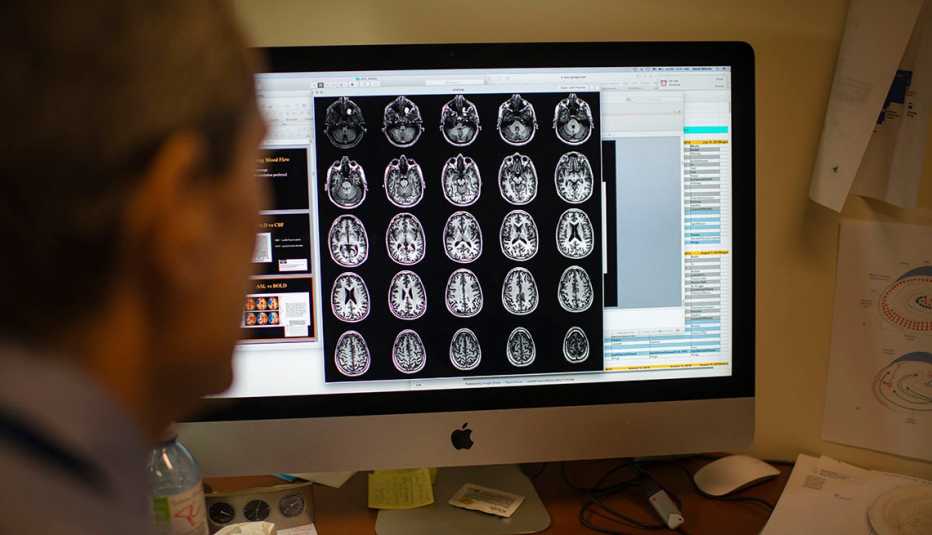Staying Fit


After years of setbacks, things are looking a little more hopeful on the Alzheimer's treatment front. Biogen is waiting to hear whether the Food and Drug Administration will approve its somewhat controversial antibody therapy, aducanumab. If it gets the green light, aducanumab would be the first drug available to slow the progression of Alzheimer's disease, not just treat its symptoms. And earlier this year, Eli Lilly announced positive results from a phase 2 clinical trial, finding its experimental drug, donanemab, may delay cognitive decline in people in the early stages of Alzheimer's disease.
Even as researchers inch closer to a major breakthrough, experts aren't ready to hang their hats on one specific treatment to bring relief to the more than 6 million Americans who suffer from Alzheimer's disease. More than 200 government-funded studies and clinical trials are underway, and many of them could hold an answer for ending Alzheimer's.


AARP Membership— $12 for your first year when you sign up for Automatic Renewal
Get instant access to members-only products and hundreds of discounts, a free second membership, and a subscription to AARP the Magazine.
"The growing realization” among people who study Alzheimer's and related dementias “is that the underlying processes and pathologies that lead to dementia can be very diverse,” explains Richard Hodes, director of the National Institute on Aging (NIA) at the National Institutes of Health (NIH). And so different people may require different treatments — or a combination of a few — depending on what's driving the progression of their disease.
This tailored approach, known as precision medicine, is the topic of an NIH Alzheimer's research summit taking place this week. You may have heard of precision medicine in cancer care, where doctors piece together specific treatments based on a person's genes or the genetic changes in their cancer.
"We're discovering that maybe a similar approach could be taken with Alzheimer's disease,” says Eliezer Masliah, director of the NIA's Division of Neuroscience. “Not all cancers are the same or are created equal. And I think the thing we can say about Alzheimer's disease and related dementias is not all of them are the same.”
Researchers explore diverse ‘targets’ for answers
To get to the point where physicians can help prevent Alzheimer's in people at risk, or help those diagnosed with the disease avoid its debilitating symptoms, scientists are studying a variety of so-called targets for intervention.
At the forefront is amyloid, a protein that clumps together and forms plaques in the brains of people who have Alzheimer's. Both aducanumab and donanemab — the two experimental drugs making headlines — are designed to cling to and clear these toxic plaques. Another popular target, and also a hallmark of Alzheimer's disease, is tau, which forms abnormal tangles inside the neurons, disrupting cell function in the brain.
Inflammation has become “a major subject and target for therapeutics” as well, Masliah points out. Chronic inflammation is often seen in the brains of people who have Alzheimer's. It sets in when microglia cells, which normally keep the brain free of waste and toxins, fail to do so, according to the NIA.


































































More From AARP
Alzheimer's Deaths Jumped 16 Percent During Coronavirus Pandemic
Living conditions, lack of social distancing, mask-wearing may be factorsDementia's Gender Disparity: Report Uncovers Unique Challenges Facing Women
Plus, tips on how to reduce dementia risks and ease the caregiving burdenGlobal Council on Brain Health
Homepage for AARP's Global Council on Brain Health